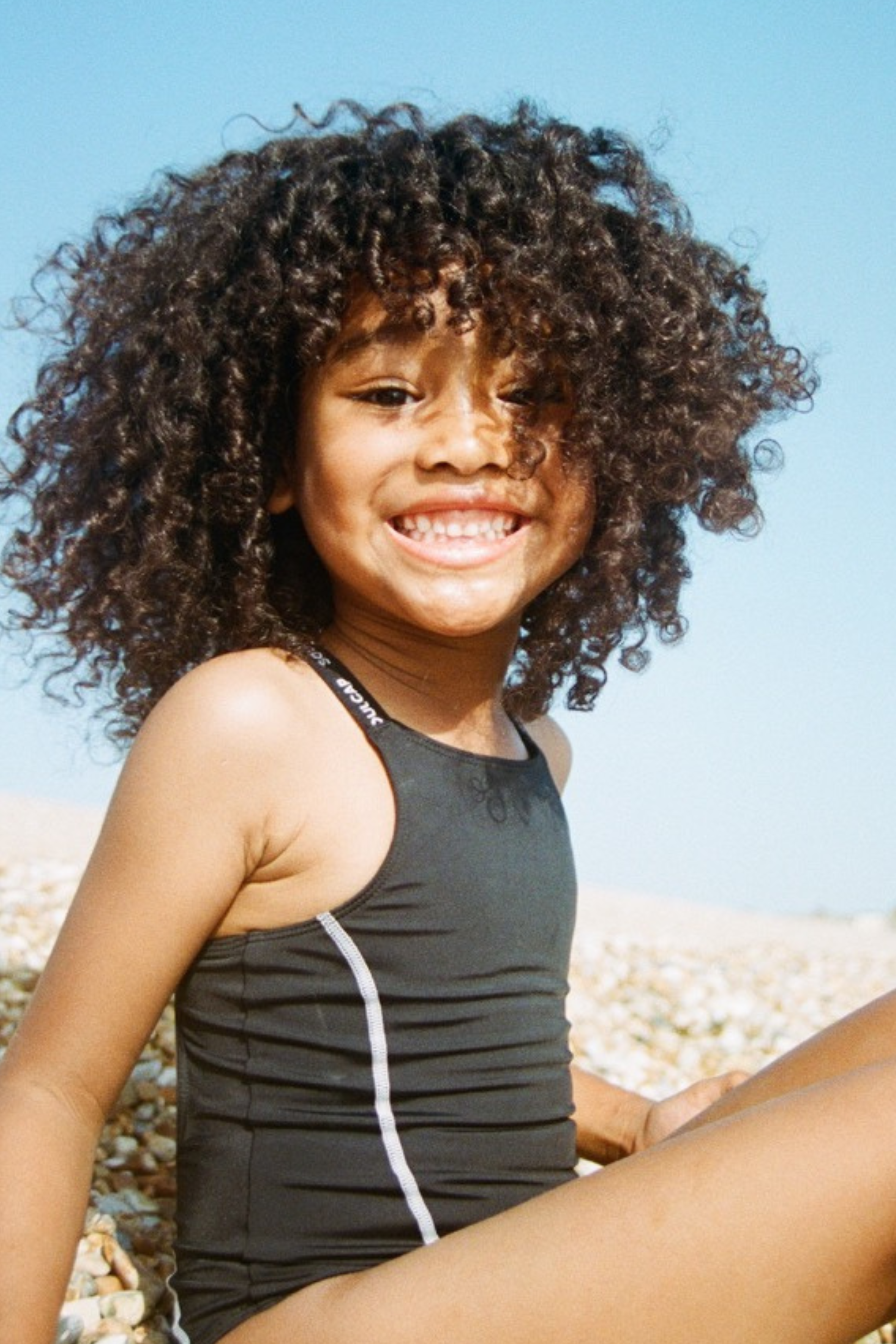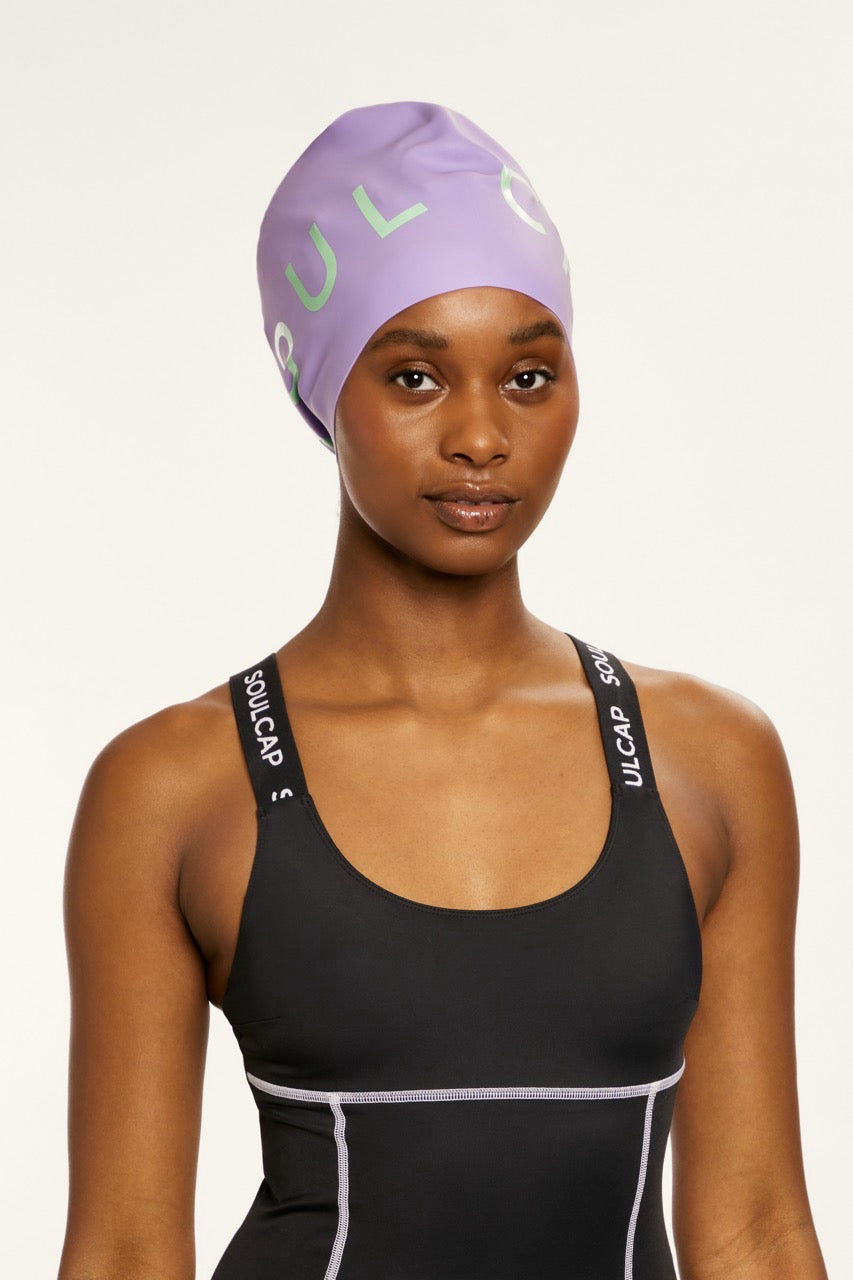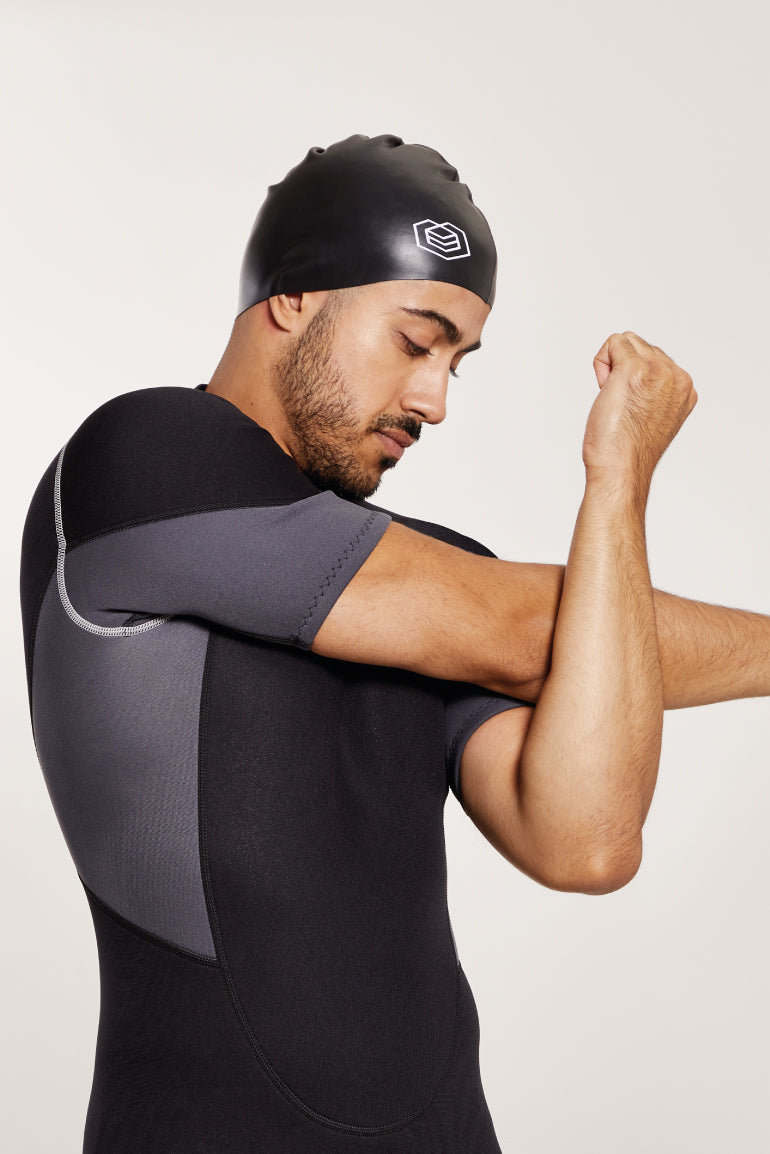1. Rinse your hair with clean water before and after swimming
Your hair is absorbent, just like a sponge. When it’s dry, it hungrily absorbs any liquid surrounding it – and if you’re swimming, that means it’ll suck up as much chlorinated water as it can.
That chlorinated water can strip away the natural oil (sebum) that coats and protects the shiny layer of your hair (the cuticle), leaving the strands of your hair dry and cracked.
So how do you make a dry sponge less absorbent? Make it wet!
Before you take a dip in the pool, rinse your hair thoroughly with clean water for a few minutes. Once it’s full of chlorine-free water, it’ll take longer for the harsh chemicals in the pool to get through into your hair and do damage.
The same science also applies to your skin – which is why it’s always a good idea to take a shower before getting in the pool if you want to protect both your skin and your hair when swimming.
2. Use natural oils to add a protective layer
We already know that chlorine attacks the natural oil that’s guarding our hair. So to help out your hair’s natural defences, you can apply other natural products like olive oil or coconut oil to create an extra layer of water-resistant protection.
Olive oil is full of antioxidants and Vitamins A and E, and helps to protect keratin, the protein that’s found in hair and skin. Coconut oil, on the other hand, is rich in fatty acids that moisturise your hair and scalp – and it’s often a lot cheaper than olive oil for everyday use.
3. Never leave pool water in your hair
Chlorinated water doesn’t just do damage while you’re swimming. If you don’t wash it out thoroughly, the chemicals in the pool can sit in your hair all day long, continuing to dry out and crack your strands.
So as soon as you’re out of the pool, wash your hair thoroughly with a clarifying shampoo and rinse it with clean water as much as you can.
But don’t go overboard. Clarifying shampoos can be hard on the hair themselves – so use a small amount and try to avoid using it every day.

4. Get a conditioner made for swimmers
If you’re not too keen on the idea of using food-based oils, there are plenty of other products tailor-made to protect hair when swimming.
Before you swim, use a hydrating conditioner (such as one that contains dimethicone) to coat your hair strands with an extra barrier against the chlorinated water.
And after you’re finished and you’ve washed your hair with shampoo, work in a deep conditioning mask or leave-in conditioner to help re-hydrate your hair and prevent any further damage.
5. Keep your hair dry and safe with a quality swimming cap to protect hair when swimming
Oils and conditioners are great for temporary protection. But they won’t last through a long swim.
If you’re serious about your swimming and your hair, you’ll need to keep chlorinated water as far away from your hair as possible – and that means wearing a tough swimming cap that can cover all of your hair. See our large swim cap specially made for long and voluminous hair.
Of course, the best way to protect hair when swimming involves a combination of everything we’ve talked about today.
So before you go for a dip, always remember to:
- Rinse your hair with clean water
- Apply conditioners or natural oils to keep water away
- Put a solid swimming cap over your conditioned hair
- And always wash out the chemicals with shampoo after your swim.






